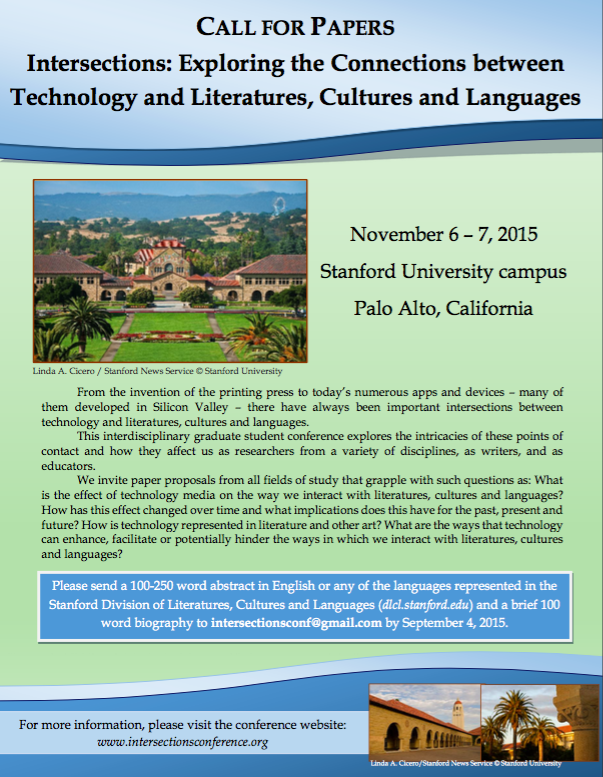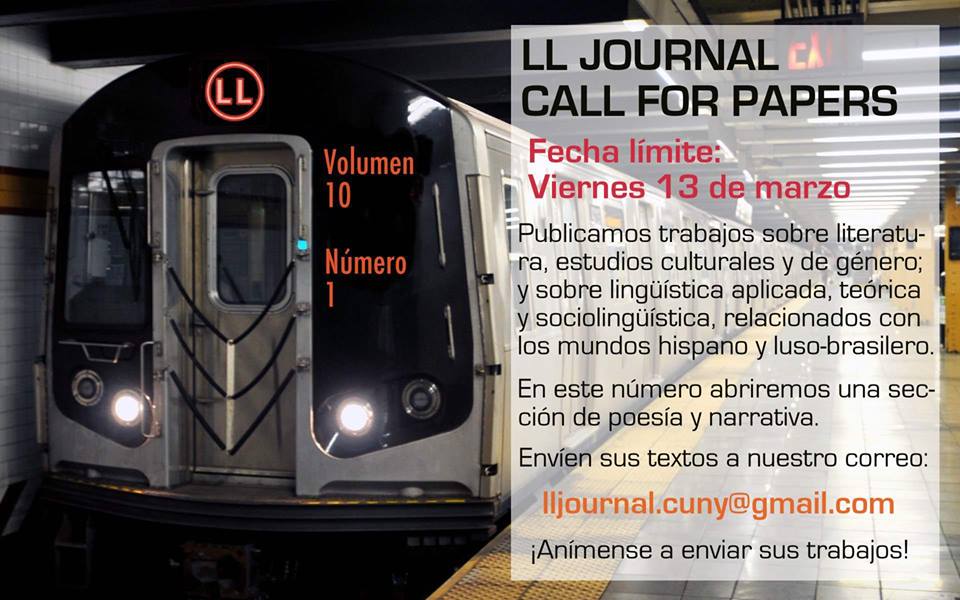Simposio Internacional sobre igualdad y comunicación
Organizado por:
Grupo de Investigación “Género, Estética y Cultura Audiovisual (GECA)”
Departamento de Comunicación Audiovisual y Publicidad-1
Facultad de Ciencias de la Información
Universidad Complutense de Madrid
Fechas: 20, 21 y 22 de abril de 2016
Lugar: Madrid, España
Fecha máxima de envío de las propuestas: 13 de marzo de 2016
PRESENTACIÓN
El Grupo de Investigación de la Universidad Complutense de Madrid “Género, Estética y Cultura Audiovisual (GECA)” convoca el Simposio Internacional sobre igualdad y comunicación para atender a la igualdad en la educación y la comunicación en la eliminación de los estereotipos sexistas en el diseño de campañas de información, la orientación académica, la comunicación desde entidades y la comunicación personal, sin olvidar todas las dimensiones de las relaciones entre Género y Comunicación y, para ello, hacemos una llama a la participación y presentación de propuestas para comunicaciones a especialistas, investigadoras e investigadores, tanto del ámbito nacional como internacional.
Planteamos el Simposio Internacional sobre resultados de trabajos y proyectos de investigación (serán seleccionados por un sistema de revisión ciego por pares y un Comité Científico Internacional) para poner en común el estado de sus investigaciones y exponer las principales líneas actuales de investigación y de actuación en el ámbito internacional y nacional sobre estudios de género, de mujeres y feminismo, de hombres y masculinidades y estudios LGBTI y teoría Queer y sus relaciones con la cultura audiovisual, como vehículos de construcción social y cultural para la igualdad.
PRINCIPALES ÁREAS DE INTERÉS PARA LAS PROPUESTAS
- Igualdad en la educación y la comunicación
- Eliminación de los estereotipos sexistas en el diseño de:
- campañas de información
- orientación académica
- comunicación desde entidades o comunicación personal
- Fomento de la igualdad de oportunidades en las carreras universitarias con especial proyección en la trasmisión de valores sociales, o en ámbitos en donde las mujeres estén claramente infrarrepresentadas, en particular en estudios tecnológicos
- La doble discriminación de las mujeres por su condición de discapacidad, de pertenencia a minorías étnicas, por migración o exclusión social
- El principio de igualdad de oportunidades en los procesos de formación y evaluación del sistema educativo
- La incorporación de criterios de igualdad y no discriminación en materiales, contenidos y, en general, en los itinerarios formativos (en todos los niveles educativos)
- Procesos y mecanismos de violencia que se ejerce contra las mujeres en el ámbito educativo
- Eliminación de los estereotipos sexistas en el diseño de campañas de información y orientación académica
- Estereotipos sexistas en la universidad y las salidas laborales
- Cómo las mujeres han tenido que luchar contra los estereotipos sexistas para que no las silenciaran y visibilizaran en su quehacer académico y profesional
- Mujer y comunicación
- Mujer y creación artística y/o cultural
- Mujer y cine (con especial interés en las aportaciones realizadas por las mujeres en su ejercicio profesional)
- Igualdad en razón en la diversidad afectivo-sexual
- Comunicación, cultura audiovisual y cuestiones LGBTIQ
- Publicidad, Relaciones Públicas y Género
- Educación y género (con especial atención al bulling escolar)
- Analizar y ofrecer propuestas y recomendaciones sobre igualdad (con especial atención a la educación y la comunicación con el fin de dar soluciones para eliminar los estereotipos sexistas en el diseño de campañas de información, orientación académica y comunicación desde las entidades y la comunicación personal, tantas veces dificultada por la interiorización del machismo y la discriminación institucionalizada y pasiva)
CONSEJO CIENTÍFICO INTERNACIONAL DEL SIMPOSIO
- Isabel Arquero, Universidad Complutense de Madrid
- Nancy Berthier, Université de Paris-IV-Sorbonne (Francia)
- Giulia Colaizzi, Universitat de V alència
- Brad Epps, University of Cambridge (Reino Unido)
- Uta Felten, Universität Leipzig (Alemania)
- Marta Fernández, Universidad de las Islas Baleares
- Román Gubern, Universidad Autónoma de Barcelona
- Liisa Irene Hänninen, Universidad Complutense de Madrid
- Amparo Huertas Bailén, Universidad Autónoma de Barcelona
- Dieter Ingenschay, Humboldt Universität zu Berlin (Alemania)
- Margarita Ledo Andión, Universidade de Santiago de Compostela
- Isabel Menéndez, Universidad de Burgos
- Patricia Núñez, Universidad Complutense de Madrid
- Christopher Perrian, University of Manchester (Reino Unido)
- Roxana Sosa, Universidad Complutense de Madrid
- Iolanda Tortajada, Universidad Rovira i Virgili (Tarragona)
- Francisco A. Zurian, Universidad Complutense de Madrid
PROPUESTAS Y ESQUEMA DEL SIMPOSIO
- El Simposio se articula en paneles, de un máximo de 4 intervenciones más 1 moderador-a
- Cada intervención no puede superar los 20 minutos
- Después de cada panel se abrirá un tiempo para debate
- Se pueden proponer tanto intervenciones individuales como paneles completos (en este caso se tendrán en especial consideración las propuestas que partan de proyectos de investigación competitivos)
- Las propuestas consistirán en un resumen (abstract) en español (máximo 500 palabras por intervención o 2000 palabras por panel) acompañado del nombre completo, adscripción institucional, cargo académico, email, dirección y teléfono de contacto
- Las presentaciones se realizarán en español
FECHAS PARA ENVÍO DE PROPUESTAS
- Fecha máxima de envío de las propuestas: domingo, 13 de marzo de 2016.
- Fecha máxima para comunicar la aceptación: lunes, 21 de marzo de 2016.
- Las propuestas e inscripciones se enviarán vía correo electrónico a: [email protected]
- Más información en: http://www.ucm.es/geca
DATOS DE INTERÉS
Inscripción y cuota: gracias a la financiación del Instituto de la Mujer del Gobierno de España y la colaboración de la Universidad Complutense de Madrid, de la Facultad de Ciencias de la Información y del Departamento de Comunicación Audiovisual y Publicidad-1, no hay cuota de inscripción como una forma, también, de contribución a las y los investigadores en su trabajo y desarrollo académico.
ORGANIZADO POR: GECA



